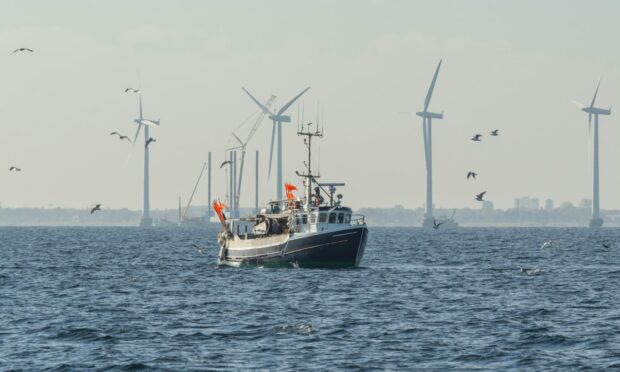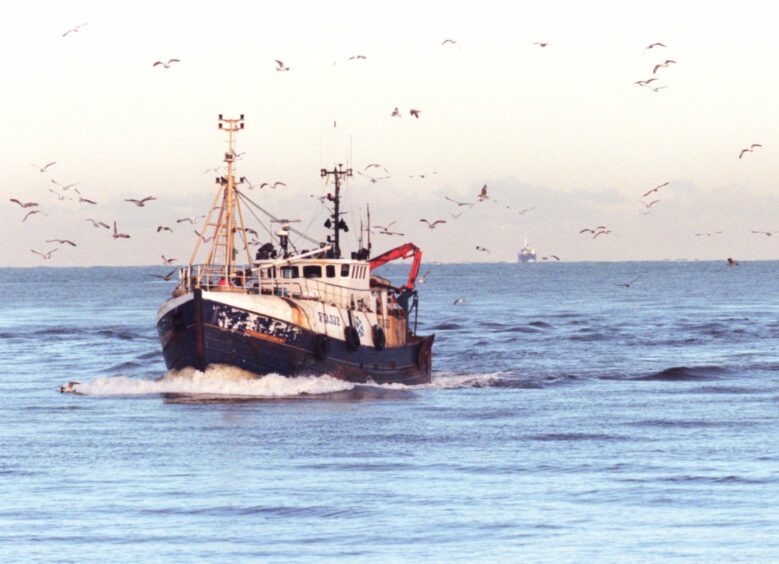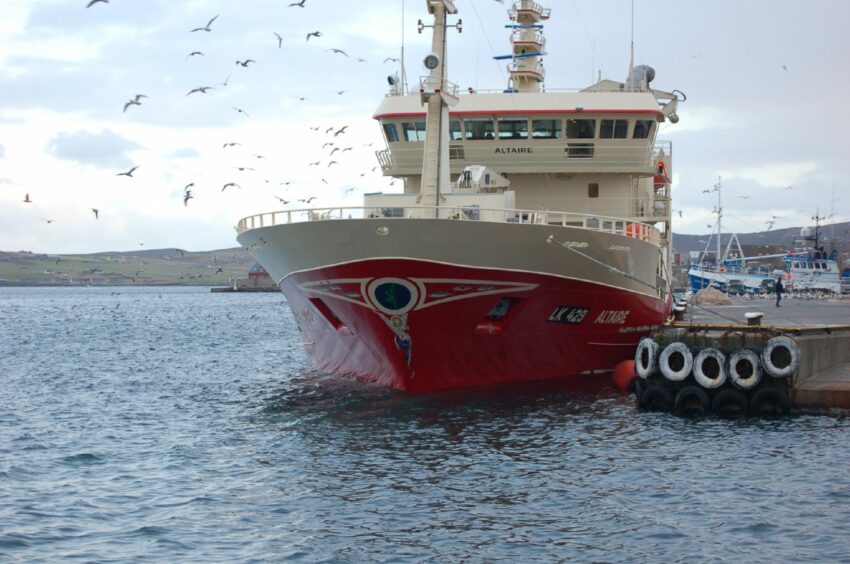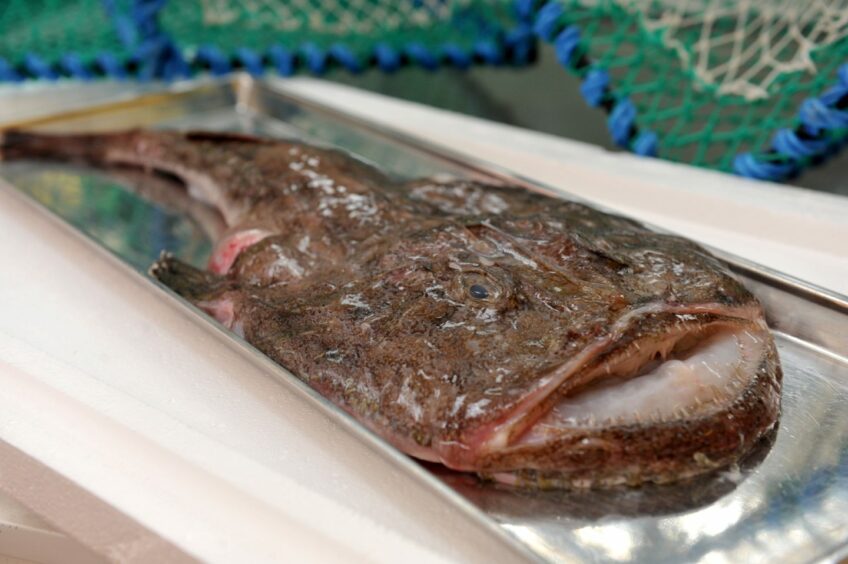The fishing industry has a key role to play in the energy transition amid a “spatial squeeze” in Scottish waters.
That was the message from Elspeth Macdonald, chief executive of the Scottish Fishermen’s Federation (SFF) yesterday (November 12) during her presentation at the latest North East Fisheries Development Partnership meeting.
Marine renewables have to be part of the Scottish energy mix – but it presents a real challenge for fishing.”
Elspeth Macdonald, chief executive, SFF.
Ms Macdonald said fishers faced competition for territory from a range of other sectors, including aquaculture, oil and gas, and marine renewables.
Marine protected areas are also a limiting factor on fishing opportunities, she added.
And sea space is about to be “squeezed” even more by a raft of offshore wind energy developments as Scotland pursues its net-zero carbon emissions targets, SFF’s CEO said.
“We are not the only fish in the sea, she said, adding the industry in Scotland had been around “since time immemorial” – long before the other sectors now competing for space.
Ms Macdonald said her industry understood the need for offshore windfarms but it was important too for those guiding the energy transition to recognise the role fishing plays in tackling climate change.
She added: “Offshore wind is the sector that is going to be growing very quickly over the next decade.
“It has the greatest potential to eat into the sea space that fishing may want to use.
“We know Scotland has to change, and that it has ambitious net-zero targets.
“Clearly, marine renewables have to be part of the Scottish energy mix – but it presents a real challenge for fishing.”
Championing the Scottish fleet’s own important role in the transition, she said: “Fish is a low carbon, high quality , high protein foodstuff.
“Yes, we need energy but we also need to eat.”
It is frustrating for fishers to be asked to give up areas because of the offshore “squeeze”, she said, adding there was often nowhere else offering the same opportunity.
The number of floating wind farms proposed for the North Sea will create an increasingly large “spatial footprint” – bringing new challenges for fishers, she added.
‘Fair and equitable access
She continued: “We do need offshore wind for Scotland to become net-zero but we also need low impact sources of food.
“Balanced spatial planning is going to be really key for the future.
“The spatial squeeze is already happening and we know it’s going to get much tighter, particularly with the designation of marine protected areas and the development of offshore wind.”
Calling for “fair and equitable” access to offshore opportunities, she said: “This has to be done in a way that industries can continue to be viable and can continue to grow.
“Fishing deserves to still have its place at sea. We are also part of the road map to net-zero.”
Other speakers at the meeting included Coby Needle, chief fisheries advisor for Scotland, Marine Scotland Science, who gave an update on the latest advice affecting key commercial fish stocks from the International Council for the Exploration of the Sea (Ices).
The international body advises governments, with the aim of striking a balance between fishing activity and protecting stocks.
Ices has called for a 10.3% cut in North Sea cod quota next year, compared to its advice for 2021.
Its advice for North Sea whiting and prawns is up by 236% and 25% respectively.
Recommendations for the northern shelf, including all Scottish fishing areas, are substantially up (154%) for haddock, but down for hake, saithe and monkfish – by 27%, 24% and 20% respectively.
For stocks off the west coast, Ices has recommended a 4,114-tonne quota for whiting in 2022, compared with its zero catch advice for this year.
West coast cod and herring still carry a “no catch” recommendation – to help build up stocks.
North Sea mackerel and herring advice is down by 7% and up by 45% respectively.




